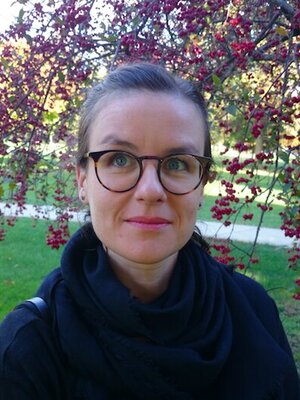
Julie Gaillard is Assistant Professor of French, in the department of French and Italian.
What is the focus of your current work and/or subject of your current research?
I currently work on the pronoun "we” at the intersection of political philosophy, literary studies, cultural studies and linguistics. What is the relationship between "I," "you" and "we" in various cultural texts and contexts? Does "we" find its legitimation in a particular origin? a universal ideal? Something else? What are the underlying discourses that determine mechanisms of inclusion and/or exclusion in the shifting political landscape of contemporary France? And what is the metaphysical background undergirding these discourses?
What classes do you teach? What are some of the topics of those classes?
This semester, I’m teaching an exciting new course titled “Contemporary Literature in French: Choix Goncourt US 2024,” in collaboration with the Cultural services of the French embassy and the Goncourt Academy, which awards each year one of the most prestigious awards for literature in French. With the Choix Goncourt, students across the globe have the opportunity to participate in this competition, and our campus was selected to be one of ten participating campuses across the US. I regularly teach "Introduction to Cultural Analysis," a course introducing students to the critical analysis of a variety of cultural texts through the exploration of contemporary debates around the notion of “French identities”. This course is a pre-requisite for the minor and major in French. Last Fall I taught "Media and Cinema in French: Politics of the Gaze," an elective course that focuses on photography and its history from its inception to contemporary online practices to explore how visual technologies (have) contribute(d) to enforce – or subvert – relations of power and ideologies.
Do you have any recent awards, honors, or publications that you would like to highlight?
Last Spring, I was awarded a Humanities Research Institute Prize for Research in the Humanities (Honorable Mention) for my article “Returning ‘Home’? Or Dwelling in the Pixel Age. On Invader’s Space Invasion” published in 2022 in the journal Intermédialités/Intermedialities. I also recently published two articles on the topic of feminist mobilizations against sexual violence in contemporary French culture and literature.
What is a book (academic or non-academic, in or outside your field) that you think should be more widely read?
I have been quite taken with a book published recently in French by philosopher Mohamed Amer Meziane. It will soon become available in English under the title The States of The Earth: An Ecological and Racial History of Secularization, grab a copy when it comes out!